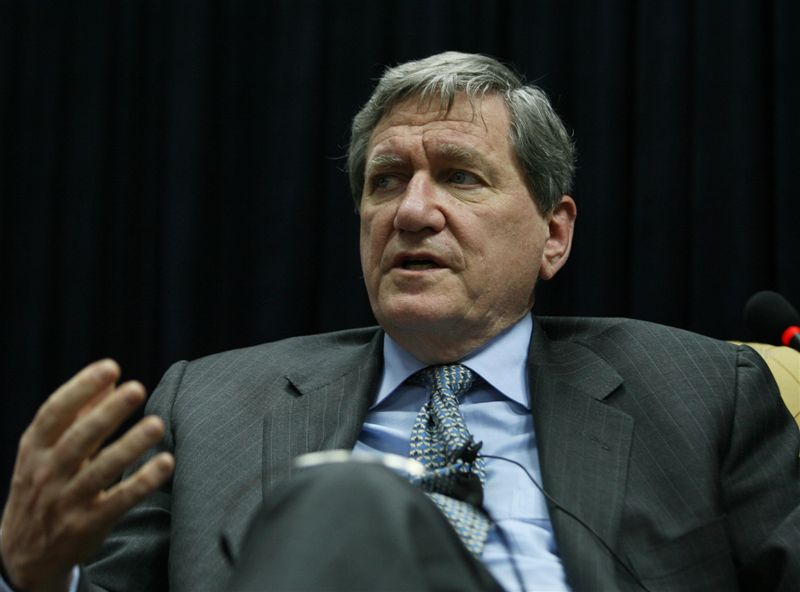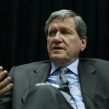
Holbrooke’s Visit Highlights US-Uzbek Regional Dilemmas and Opportunities
Publication: Eurasia Daily Monitor Volume: 7 Issue: 45
By:

Richard Holbrooke, US Special Representative for Afghanistan and Pakistan, visited Uzbekistan on February 19 as part of a series of meetings across the Central Asian capitals to boost regional support for the military campaign in Afghanistan, as well as cultivating closer collaboration with Uzbekistan. Uzbek President, Islam Karimov, and Holbrooke discussed a range of issues, emphasizing the importance of bilateral efforts aimed at bringing stability to Afghanistan (Interfax, February 20).
Uzbekistan, bordering all the Central Asian republics, is a key link in the Northern Distribution Network (NDN), running supplies from Europe through Russia and the Central Asian states to Afghanistan. Tashkent understands its importance for NATO, and makes every effort to secure more durable cooperation with the West in light of the scheduled troop withdrawal from the war-torn country. Indeed, NATO’s departure might not only undermine regional security, but it can also tilt the regional balance of power, and disadvantaged local states, especially Uzbekistan that has occasionally distanced itself from political pressure by major powers.
In this context, Holbrooke’s visit to Uzbekistan falls into the annual bilateral consultations framework launched in 2009, and Karimov’s action plan approved on January 11 that seeks to put bilateral relations on a more productive and solid footing. The plan envisions visits to Uzbekistan by representatives of the US Congress and US Secretary of State Hillary Clinton, as well as an event with the Washington-based Atlantic Council on the country’s regional security initiatives, including Karimov’s proposal to create a “6+3” forum to address security problems in Afghanistan (www.fergana.ru, February 19). The action plan further states that Uzbekistan will “insist on high level participation in the political consultations from the American side –experts from the State Department, National Security Council and other US government agencies.” However, as the US Ambassador to Uzbekistan, Richard Norland, underlined, no related arrangements have yet been specified (Eurasianet, January 28).
Nonetheless, Karimov expressed to Holbrooke, “Uzbekistan’s firm determination to further develop US-Uzbek relations in a constructive way in light of efforts to bring lasting peace and stability to Afghanistan” (Interfax, February 20). Given the recent surge in troops and the growing momentum to secure success in Afghanistan, NATO and the US are unlikely to ignore this opportunity. Uzbekistan has already increased its energy transfers to Afghanistan this year, while proceeding with the construction of the Hairaton-Mazar-i-Sharif railroad, connecting Afghanistan to the region and allowing shipments of the NDN cargo through its territory. Holbrooke also emphasized the significance of this cooperation during his press conference, though he excluded plans to restore the former US military base in the country: “Uzbekistan does provide valuable opportunities to transit material to Afghanistan and that is important, but a military base? No” (UzA, February 19; Radio Free Europe, AP, February 21).
Indications of the warming relations between the West and Uzbekistan have recently been evident, almost five years after Uzbekistan evicted US forces following Western accusations of the regime’s authoritarian practices and the alleged killing of innocent protesters in Andijan. The EU, for instance, lifted an arms embargo on Uzbekistan and the US signed a transit agreement with the country in 2009, opening the way for shipments of non-lethal supplies to Afghanistan through Uzbek territory (www.inform.kz, January 27).
The fragile security situation in Afghanistan, and NATO’s plans to withdraw from the country, has certainly facilitated the rapid development of US-Uzbek relations. Without US and NATO assistance, Uzbekistan would face the daunting prospect of dealing with al-Qaeda, the Islamic Movement of Uzbekistan, and the Islamic Jihad Group that will only feel more empowered after NATO’s departure. Even today, Al-Qaida continues to pose a serious threat to the region, according to Holbrooke (Radio Free Europe, February 21).
Moreover, Uzbekistan is concerned about Russia’s regional policies, and views its relations with NATO and the US as a crucial component of its counter-balancing strategy. Russian attempts to secure a stake in the regional water system, as in the case of the failed or stalled negotiations over Tajikistan’ Rogun and Kyrgyzstan’s Kambarata-1 hydropower stations, has seriously concerned Tashkent. The latter also opposes Russia’s plans to set up a new military base in southern Kyrgyzstan, fearing that it might encourage militarization and nationalistic confrontations in the region. The planned base would operate under the framework of the Collective Security Treaty Organization (CSTO) Rapid Reaction Forces agreement adopted on June 14, 2009, which Tashkent chose to avoid based on its fear of Russian involvement in the region plagued by water and border conflicts, especially between Uzbekistan and its neighbors (World Security Network, August 5, 2009; CACI Analyst, June 15, 2009).
Thus, the base might help Moscow to keep Tashkent within its “sphere of influence,” given Uzbekistan’s history of unpredictable policies toward major powers and the possibility of any US military presence in the country, as well as curbing Islamic radicalism and terrorism on its southern frontiers. In this light, Holbrooke’s’ visit and the normalization of bilateral relations serve the mutual objectives of the US and Uzbekistan to provide security in Afghanistan, while also opening ways for a more enduring (albeit still potentially vulnerable) cooperation against the backdrop of the unstable triangular dynamics in US-Uzbek-Russian relations.




